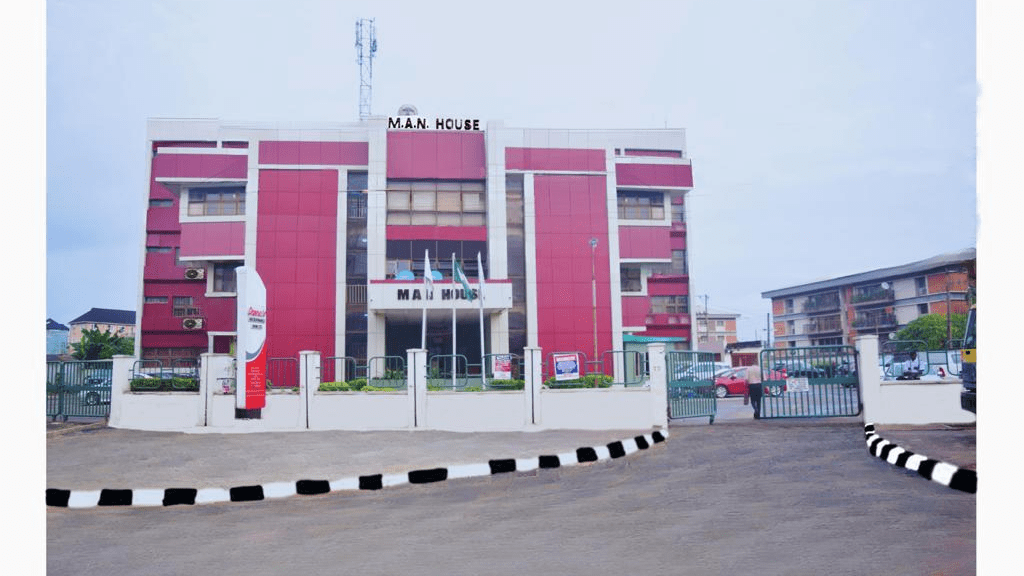ALIYU GAYA urges government to pursue a policy that promotes patronage of indigenous manufacturers and service providers
One exceptionally commendable fact about the Bola Tinubu presidency is that it is not lacking in ambition and audacity. Courage defines the leader and Tinubu has it in good measure. Think about this: Tinubu wants to grow Nigeria networth to a $1 trillion economy by 2030. While this shows ambition, it is much more a demonstration of audacity in leadership.
To achieve this, Tinubu says Nigeria must lean on and encourage local production. He believes that achieving food security is the sine qua non for advancing the nation’s economy through heavy investments in the agriculture value chain. He is pushing a Nigeria First, Buy-Nigeria policy. Some of his ministers and appointees are also singing the same local production hymn.
A quick fact-check shows that this is not new, especially since the commencement of the 4th Republic. President Olusegun Obasanjo, it has to be emphasised, laid a solid foundation to promote indigenous production of goods and services. He did not chyme Buy Nigeria, he lived it, implemented it and the results were profound. The results of Obasanjo’s Buy Nigeria policy manifested in diverse ways. Local patronage of indigenous fruit drinks and ban on imported ones; local production of air time cards for GSM service providers; local patronage of locally assembled computers that gave a huge boost to local production of same such that some ministries, departments and agencies (MDAs) standardised their IT operations on indigenous computer hardware and software.
Sadly, despite the traction gained by indigenous products, the succeeding governments did not as much as sustain the Buy-Nigeria momentum. Tinubu seems determined to do so. But to achieve the noble ambition of $1 trillion economy, President Tinubu must listen to key Nigerians who are not only employers of labour but are deeply committed to indigenous production as the key to unlocking the huge potential of the nation’s economy.
One of such Nigerians Tinubu must take heed to his advice is Aliko Dangote, the President of Dangote Group whose refinery is the biggest single infrastructure project in Africa. Dangote, a major indigenous manufacturer, is not happy with the manner local companies are treated in Nigeria.
Dangote recently advocated for policies that protect indigenous industries and nurture them into mega corporations capable of generating jobs and fostering prosperity. Addressing a gathering of manufacturers and investors in Abuja recently while delivering a keynote on ‘Rethinking Manufacturing in Nigeria’ at the Nigeria Manufacturers’ Summit, Dangote advocated a reversal of government policies that expose local players to vulnerabilities including continued importation of goods and services that are also produced in Nigeria. Such lack of protection of indigenous players usually in the form of lack of patronage from the government and Nigerians stunts the growth of these local players.
He cited instances of countries where governments had to take drastic measures to protect their respective local markets. These include the blocked sale of US steel to Nippon Steel of Japan; the blocked sale of six US port management companies to Dubai Ports World; restrictions on Chinese cranes at US ports; and the US imposition of tariffs such as 100% on Chinese EVs (electric vehicles), 50% on semiconductors, medical products, and solar panels.
There are other instances, including the restriction of Russia gas supply to Europe, which led European countries to increase coal usage despite opposition to fossil fuels; and the US government’s distribution of $39 billion in subsidies to incentivise local microchip production. The above cases clearly show how respective governments deliberately protect their local players, not only to give them a head-start over competition but also to help them scale up on the path of profitability. Nigerian governments have been short on this.
Leo Stan Ekeh, Chairman of Zinox Group, an African ICT unicorn, is yet another voice Tinubu should give ears to. Ekeh much like Dangote and others, has been a victim of serial blackmail and corporate bullying despite his undeniable sacrifice to create a digital culture in the Nigerian marketplace including education, media, banking, oil and gas, agriculture and other aspects of the economy. His Computerise Nigeria project became the cornerstone for the establishment of digital hubs in the nation’s tertiary institutions.
Ekeh believes that achieving a $1 trillion economy is possible but stressed that the current state of power delivery nationwide (an average of four hours per day according to latest NBS data) cannot support the type of bullish industrialisation and local production that will bolster the nation’s economic trajectory to the trillion-dollar mark. He warned that a situation where genuine players in local production and service delivery are bullied and blackmailed by unscrupulous private sector fringe players and public sector operators does not bode well for economic growth. He urges more protection from government for the progressive and proven indigenous companies. He says the concept of Buy-Nigeria should be enforced especially among MDAs.
While expressing confidence in President Tinubu to address the issue of blackmail, he suggested that Tinubu should aggressively pursue a policy that promotes patronage of indigenous manufacturers and service providers as a way of reflating the economy.
He said: “It is evident that the core of the myriad challenges afflicting the nation today is our failure to develop local capacities. We must embrace self-sufficiency by consuming what we produce and supporting indigenous players across various sectors.”
He regretted that in spite of several local content policies established by the federal government, such policies are consistently disregarded by government employees and appointees, wondering why “we send our children to the world’s best institutions, where they excel, yet we overlook the products they create.”
He gave the example of the government of India which effective November 1, 2023 placed restrictions on the importation of laptops, tablets, all-in-one personal computers and ultra-small computers and servers with immediate effect. This, according to him, was to boost local productivity both by multinationals operating in India and indigenous Indian companies to create more jobs, encourage proficiency, and discourage capital flight.
“Mr. President, I humbly appeal to you to be deliberate and decisive in encouraging indigenous producers and service providers across all sectors. This way, we create a market for indigenous products, build confidence in our economy and easily attract international investors. The way we treat our local investors will determine how many foreign investors we can attract,” he stated in an open letter to the President earlier this year. The voices of Dangote and Ekeh echoes the voices of other indigenous players who have continued to deliver value amid vicious headwinds.
Speaking at the inaugural Domestic Investors Summit in Abuja recently, the Minister of Industry, Trade and Investment, Dr Jumoke Oduwole, reaffirmed Tinubu’s steely determination to achieve the trillion-dollar economy. She outlined targets for 2025, including $6 billion in foreign direct and portfolio investment, $6.5 billion in non-oil exports, a 20 per cent increase in trade value, and the creation of 200,000 export-led jobs. This is grand. But the major pulley that will drive this growth is the recommendation of Dangote, Ekeh and other indigenous players, which is, that the government should as a priority protect local investors and entrepreneurs through patronage, policy shift that encourages growth and categorising such investors assets as national assets deserving of preservation.
Gaya, a public policy analyst, writes from Kano
The post HOW TO ACHIEVE $1 TRILLION ECONOMY appeared first on THISDAYLIVE.



